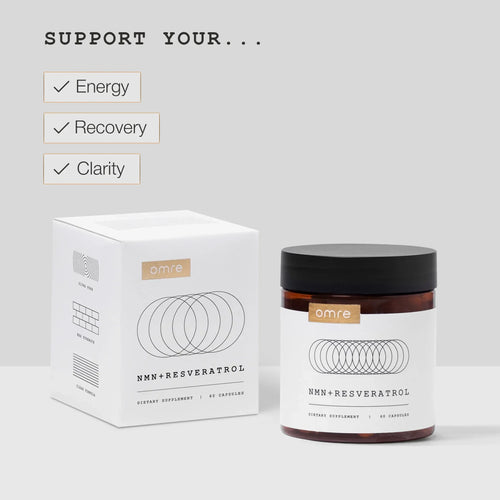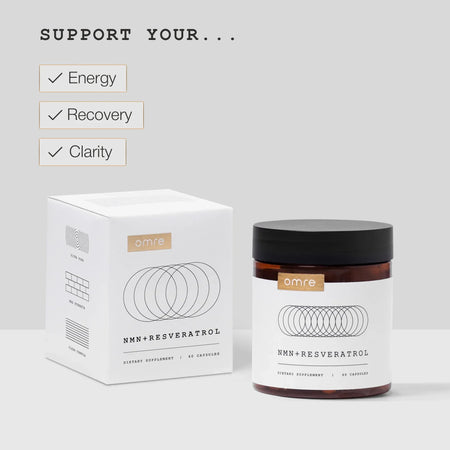Table of Contents
Feeling drained no matter how much you sleep? You’re not alone. Fatigue is a common struggle, and many people turn to supplements hoping for a fix.
But do they actually work, or is it all just marketing hype? Some vitamins and nutrients have solid research behind them, while others might not do much at all.
This article breaks down the science-backed supplements that may help fight fatigue—without the fluff or false promises.
NMN + RESVERATROL
Cellular NAD+ booster with ultra‑pure NMN and Resveratrol, at research‑backed doses.*
What Causes Fatigue?
Fatigue isn’t just about feeling tired—it can hit you mentally, physically, or both. The causes can vary from lifestyle habits to underlying health conditions. If you’re constantly running on empty, it could be due to:
Poor sleep – Not getting enough deep, restorative rest
Nutrient deficiencies – Low levels of iron, B12, magnesium, or vitamin D
Chronic stress – High cortisol levels can wear you down over time
Sedentary lifestyle – Lack of movement can actually make you feel more sluggish
Medical conditions – Anemia, thyroid imbalances, or adrenal fatigue could be at play
Dehydration – Even mild dehydration can leave you feeling wiped out
If fatigue sticks around despite lifestyle changes, it’s always a good idea to check in with a doctor.
Science-Backed Supplements for Fatigue
Some supplements have research suggesting they may help support energy levels and reduce fatigue. While they’re not magic pills, they can play a role in restoring balance when paired with a healthy lifestyle.
NMN (Nicotinamide Mononucleotide)
-v1738788795072.webp) NMN is a compound that helps produce NAD+, a molecule essential for energy metabolism. As we get older, NAD+ levels naturally decline, which some researchers believe may contribute to fatigue and lower stamina.
NMN is a compound that helps produce NAD+, a molecule essential for energy metabolism. As we get older, NAD+ levels naturally decline, which some researchers believe may contribute to fatigue and lower stamina.
Since NAD+ plays a role in cellular energy production, maintaining its levels could be key to feeling more energized.
Some early research suggests that NMN supplementation may support mitochondrial function, the powerhouse of cells responsible for generating energy (1).
A few studies have looked into NMN’s potential to improve endurance and reduce feelings of exhaustion, particularly in aging populations (2). While these findings are promising, human studies are still limited.
NMN might be useful for supporting energy levels, but its effectiveness for fatigue isn’t fully established yet. More research is needed to confirm whether supplementing with NMN leads to noticeable and long-term improvements in daily energy.
B Vitamins (Especially B12 & B6)
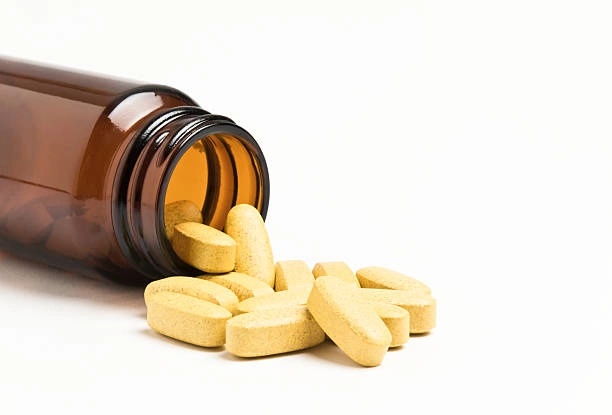 B vitamins are essential for converting food into energy, and when levels run low, fatigue can hit hard. B12, in particular, plays a crucial role in red blood cell production and nervous system function, while B6 is involved in neurotransmitter production, impacting mood and energy levels.
B vitamins are essential for converting food into energy, and when levels run low, fatigue can hit hard. B12, in particular, plays a crucial role in red blood cell production and nervous system function, while B6 is involved in neurotransmitter production, impacting mood and energy levels.
Deficiencies in these vitamins are more common than people realize, especially in those following a vegan or vegetarian diet, as B12 is mainly found in animal products.
Some studies have found that supplementing with B12 may improve energy levels, especially in individuals with a deficiency (3). B6, on the other hand, helps regulate serotonin and dopamine, which can influence how energized or sluggish you feel.
For those struggling with unexplained fatigue, checking B12 levels might be a good idea. While B vitamins won’t provide a sudden surge of energy like caffeine, they can support steady energy production over time when taken as part of a balanced diet.
Iron
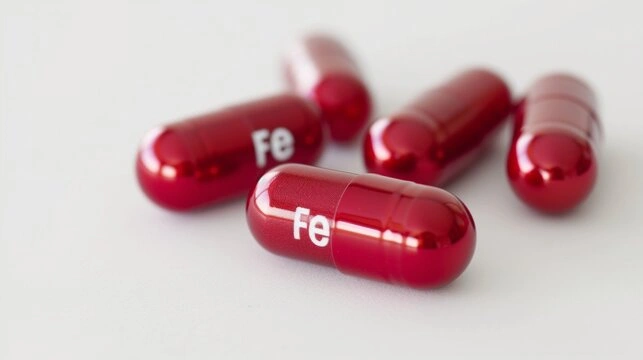 Iron is essential for transporting oxygen through the blood, and low levels can lead to iron-deficiency anemia—a common cause of fatigue, particularly in women.
Iron is essential for transporting oxygen through the blood, and low levels can lead to iron-deficiency anemia—a common cause of fatigue, particularly in women.
When the body doesn’t have enough iron, it struggles to carry oxygen efficiently, leaving you feeling weak, tired, and sometimes even short of breath.
Research suggests that iron supplementation may help reduce tiredness in individuals with low iron stores (4). It’s especially important for menstruating women, endurance athletes, and those following plant-based diets, as they are more prone to deficiency.
That said, too much iron can be harmful, so it’s best to get a blood test before taking supplements. If iron levels are normal, boosting energy through diet and other lifestyle factors may be a better approach.
Magnesium
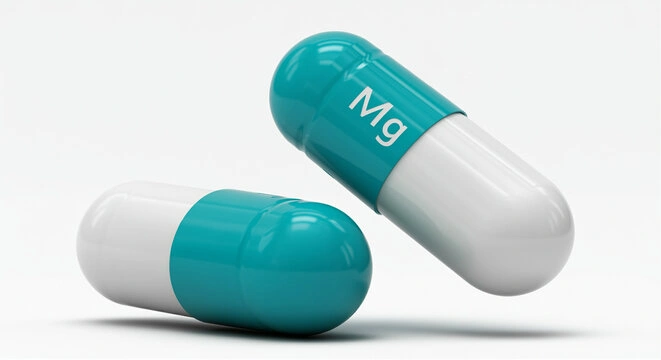 Magnesium is involved in hundreds of biochemical reactions in the body, including muscle function, relaxation, and sleep. Low magnesium levels have been linked to increased fatigue and difficulty getting restful sleep, which only worsens the cycle of tiredness.
Magnesium is involved in hundreds of biochemical reactions in the body, including muscle function, relaxation, and sleep. Low magnesium levels have been linked to increased fatigue and difficulty getting restful sleep, which only worsens the cycle of tiredness.
Some studies have found that supplementing with magnesium may help reduce fatigue, particularly in individuals with deficiencies (5).
Since magnesium plays a role in ATP production—the body’s primary energy source—getting enough of it might help support steady energy levels throughout the day.
There’s also evidence that magnesium can improve sleep quality, making it easier to wake up feeling refreshed. If you often wake up groggy or find yourself exhausted by mid-afternoon, magnesium could be worth considering.
Coenzyme Q10 (CoQ10)
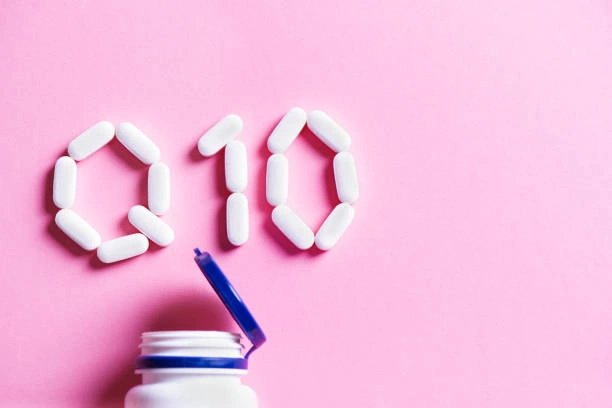 CoQ10 is a natural compound that helps with cellular energy production, but levels tend to decline with age. Some researchers believe this decline could contribute to fatigue, especially in individuals dealing with chronic health conditions.
CoQ10 is a natural compound that helps with cellular energy production, but levels tend to decline with age. Some researchers believe this decline could contribute to fatigue, especially in individuals dealing with chronic health conditions.
Some research suggests that CoQ10 supplementation may improve energy levels in people experiencing chronic fatigue, fibromyalgia, or statin-related tiredness (6).
Since it plays a role in mitochondrial function, some studies have explored its potential to support long-term energy production.
While CoQ10 might not provide an instant boost, it could be a useful addition for those struggling with persistent fatigue. However, its effectiveness likely depends on individual factors such as age, health conditions, and lifestyle habits.
Adaptogens: Ashwagandha & Rhodiola Rosea
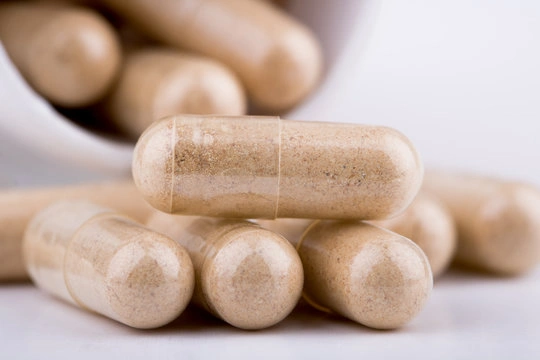 Adaptogens like Ashwagandha and Rhodiola Rosea have been used for centuries to help the body handle stress and fatigue. Unlike stimulants that provide a quick energy spike, adaptogens work more subtly by supporting the body's ability to manage stress and maintain balance.
Adaptogens like Ashwagandha and Rhodiola Rosea have been used for centuries to help the body handle stress and fatigue. Unlike stimulants that provide a quick energy spike, adaptogens work more subtly by supporting the body's ability to manage stress and maintain balance.
Studies on Ashwagandha suggest that it may help lower cortisol levels, which could be beneficial for people experiencing stress-related fatigue (7).
Rhodiola Rosea has also been researched for its potential to improve stamina, particularly under mentally or physically demanding conditions (8).
While adaptogens may not work for everyone, some people find they help with maintaining steady energy levels throughout the day. They’re worth considering for those who experience burnout or exhaustion linked to chronic stress.
Creatine
 Creatine is widely known for its benefits in athletic performance, but it may also have a role in reducing general fatigue. It helps replenish ATP—the body's main source of cellular energy—which is why it’s so popular among athletes and those looking to improve physical endurance.
Creatine is widely known for its benefits in athletic performance, but it may also have a role in reducing general fatigue. It helps replenish ATP—the body's main source of cellular energy—which is why it’s so popular among athletes and those looking to improve physical endurance.
Some research has found that creatine may also support brain energy metabolism, which could be useful for mental fatigue (9).
This has led to studies exploring its benefits in people with chronic fatigue conditions, as well as older adults who may experience a decline in natural energy levels.
Though creatine is most commonly associated with muscle recovery, its potential effects on overall energy make it an interesting supplement beyond the fitness world.
Caffeine & L-Theanine
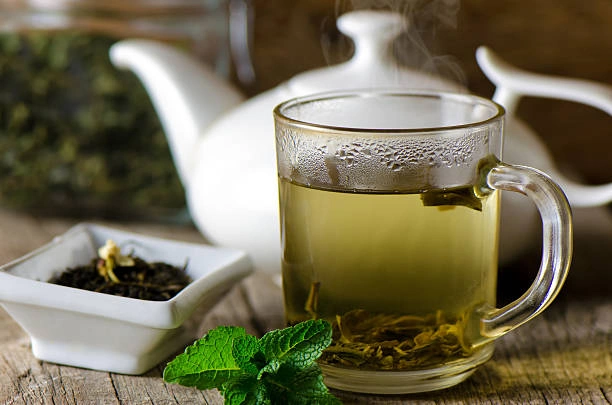 Caffeine is probably the most well-known energy booster, but too much of it can lead to crashes, jitters, and dependency. This is where L-Theanine, an amino acid found in tea, comes in. When paired together, caffeine and L-Theanine may provide a smoother and more sustained boost in focus and alertness.
Caffeine is probably the most well-known energy booster, but too much of it can lead to crashes, jitters, and dependency. This is where L-Theanine, an amino acid found in tea, comes in. When paired together, caffeine and L-Theanine may provide a smoother and more sustained boost in focus and alertness.
Studies have shown that caffeine can help reduce fatigue and improve concentration, but excessive use can have the opposite effect, leading to disrupted sleep and energy dips (10).
L-Theanine, on the other hand, promotes relaxation without drowsiness, helping to balance caffeine’s stimulating effects (11).
For those looking for a more controlled and focused energy boost, this combination may be a useful alternative to high doses of caffeine alone. Green tea is a natural source of both, making it a great option for gentle, sustained energy without the crash.
NMN + RESVERATROL
Cellular NAD+ booster with ultra‑pure NMN and Resveratrol, at research‑backed doses.*
Overhyped Supplements That May Not Work
Not all supplements live up to the hype. Some are heavily marketed as energy boosters but lack strong scientific backing. While they might not be entirely useless, their effects on fatigue are often exaggerated.
Ginseng
Ginseng is often promoted as a natural energy booster, especially in traditional medicine. While some studies suggest it may help with mental fatigue, the evidence is mixed. The benefits seem to vary depending on the type of ginseng used, dosage, and individual response.
Many products labeled as “energy-boosting” contain small amounts of ginseng combined with caffeine or other stimulants, making it hard to tell if ginseng itself is doing the work.
If you’re looking for a long-term fix for fatigue, there may be better options to explore.
MCT Oil
MCT (medium-chain triglyceride) oil is popular in the keto community, with claims that it provides a quick energy source. While it does get processed rapidly for fuel, its effects on fatigue in the general population aren’t well-supported by research.
Unless you’re following a strict low-carb or ketogenic diet, MCT oil might not have a noticeable impact on energy.
Plus, too much can cause digestive issues, which isn’t exactly helpful when you’re already feeling run down.
Branched-Chain Amino Acids (BCAAs)
BCAAs are commonly used by athletes to support muscle recovery, but they’re sometimes marketed for fighting fatigue as well.
While they may help with exercise-related tiredness, they don’t necessarily address daily fatigue caused by stress, poor sleep, or nutrient deficiencies.
If you’re not heavily involved in endurance training, BCAAs probably won’t make a major difference in how energized you feel.
A balanced diet with enough protein will provide these amino acids naturally.
How to Choose the Right Supplement for Your Fatigue
With so many options out there, picking the right supplement can feel overwhelming. Instead of guessing, consider these key factors:
Identify the root cause – Fatigue isn’t always due to a single issue. Check if it’s related to nutrient deficiencies, stress, or lifestyle habits.
Get tested if possible – Blood tests can reveal deficiencies in iron, B12, magnesium, and other nutrients linked to fatigue.
Look for research-backed options – Supplements like B vitamins, iron (if deficient), and CoQ10 have more evidence behind them than trendy energy boosters.
Check ingredient quality – Avoid supplements with unnecessary fillers or additives. Third-party testing ensures purity and potency.
Watch for interactions – Some supplements can interfere with medications or cause side effects. If you have health conditions, consult a healthcare professional before taking anything new.
Natural Lifestyle Hacks to Reduce Fatigue
Supplements can help, but they work best when paired with healthy habits. Small daily changes can make a big difference in energy levels.
Prioritize quality sleep – Aim for 7-9 hours of uninterrupted sleep each night. Poor rest is one of the biggest drivers of fatigue.
Stay hydrated – Even mild dehydration can leave you feeling sluggish. Drink enough water throughout the day.
Get sunlight exposure – Natural light helps regulate circadian rhythms and supports vitamin D production, both of which impact energy.
Move your body – Light exercise, like walking or stretching, can help fight sluggishness without draining you further.
Eat balanced meals – Focus on whole foods with a mix of protein, healthy fats, and complex carbs to sustain energy.
- Manage stress – Chronic stress can zap your energy. Practices like deep breathing, meditation, or even a short break can help.
How Long Does It Take for Supplements to Work for Fatigue?
The time it takes for supplements to improve fatigue depends on the type, dosage, and individual factors. Some, like caffeine, work within minutes, while others, such as B vitamins or iron, may take weeks to show noticeable effects.
For deficiencies, results aren’t instant. If you’re low on B12, iron, or magnesium, you might start feeling better within a few weeks of consistent supplementation.
However, it can take a couple of months to fully restore optimal levels. Fatigue caused by chronic stress or poor sleep may take longer to improve, even with the right nutrients.
Adaptogens like ashwagandha and Rhodiola Rosea tend to have a gradual effect. Some people notice benefits within a few days, while others might need a few weeks.
The key is patience and consistency—supplements aren’t quick fixes, but they can support long-term energy when used properly.
When to See a Doctor
Before diving into supplements, it’s a good idea to get a checkup. Fatigue can stem from underlying health issues like anemia, thyroid imbalances, sleep disorders, or chronic conditions that won’t be fixed by vitamins alone.
A simple blood test can reveal deficiencies in iron, B12, vitamin D, or other key nutrients that might be contributing to low energy.
If you’ve been feeling persistently exhausted despite getting enough sleep and managing stress, it’s worth discussing with a healthcare professional.
Symptoms like dizziness, unexplained weight changes, shortness of breath, or brain fog could signal something more serious. Addressing the root cause is always the best approach before relying on supplements.
Even if your fatigue is lifestyle-related, a doctor can help rule out medical conditions and guide you toward the right solutions.
Taking random supplements without knowing what your body actually needs isn’t just ineffective—it can sometimes do more harm than good.
Conclusion
Fatigue can have many causes, and while supplements may help, they work best alongside a healthy lifestyle.
Nutrients like B vitamins, iron, magnesium, and CoQ10 have research backing their potential benefits, while some overhyped options may not deliver noticeable results.
Identifying the root cause of your fatigue is key before deciding on supplementation.
If you’re looking for a high-quality supplement to support your energy levels, Omre offers carefully formulated options designed with science in mind.
Check availability and see if it's the right fit for you.




